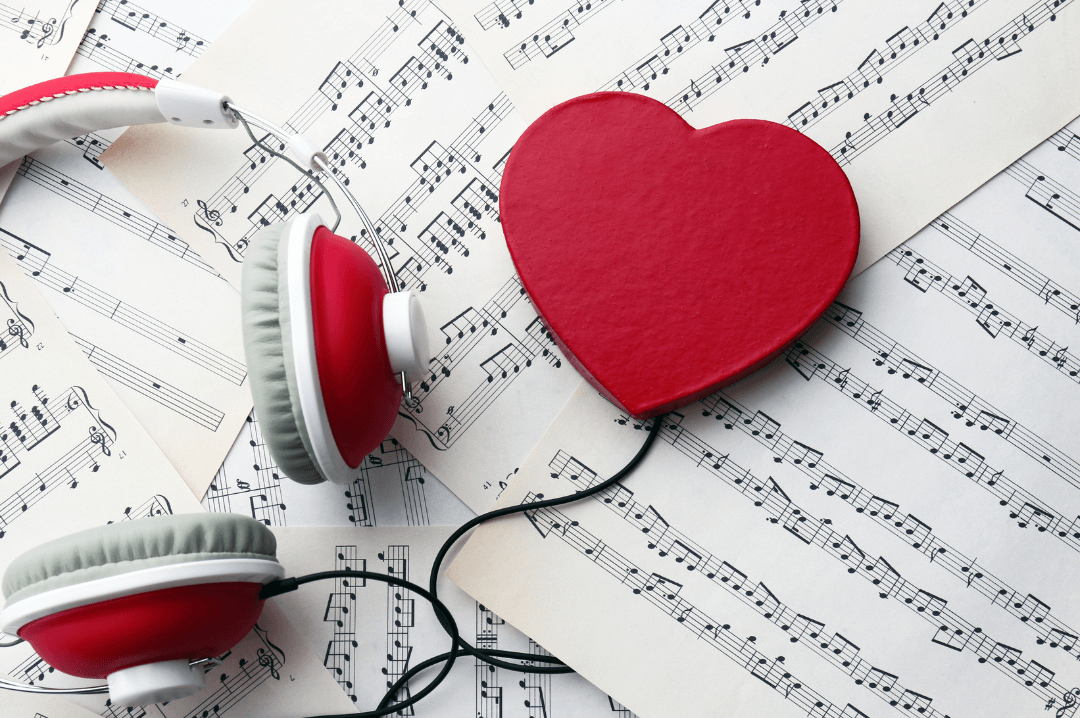We all have that one song—the one that wraps around us like a warm hug, the one that somehow knows exactly what we need to hear. It turns out, music isn’t just good for the soul—it’s good for the heart, too. And not just metaphorically.
Groundbreaking research presented at the American College of Cardiology’s Annual Scientific Session revealed that patients recovering from a heart attack who listened to music for just 30 minutes a day experienced less pain and anxiety (Miluk-Kolasa et al., 1994). It may seem unbelievable to some, but even after all we’ve learned about music, half an hour of intentional listening daily helped lower their stress, soothe their nervous systems, and even reduce the risk of further heart complications (Trappe & Voit, 2016).
Let’s Take a Beat
As someone who has a history of heart problems in my family, including heart disease and stroke, this information has reinforced my commitment to music and music therapy.
For years, we’ve understood that music has a way of moving us. It reminds us of who we are. It lifts us when we’re feeling small and sits beside us when we’re grieving. But this research shows us something even deeper: music isn’t just a comfort—it has measurable physiological benefits that support heart health.
Fill Your Heart with Music: The Science Behind Music’s Heart Benefits
You don’t need to be a musician or understand the mechanics of music to experience its benefits. The key is simplicity: take a moment to intentionally choose a song that resonates with you, put in your earbuds or adjust the volume to a comfortable level—just enough to block out distractions—then close your eyes and let yourself sink into the music, allowing it to fully surround you.
And here is why:
💛 Music reduces stress – When we listen to music we love, our bodies release dopamine and serotonin —the same neurotransmitters that make us feel happy and safe (Salimpoor et al., 2011). At the same time, stress hormone cortisol decreases, which allows the cardiovascular system to function more efficiently (Nilsson, 2009).
💛 Music lowers blood pressure – A study published in Frontiers in Cardiovascular Medicine found that listening to calming music significantly reduces heart rate and blood pressure (Chafin et al., 2004). This is a key factor in preventing future cardiac events.
💛 Music creates safety in the body – Slow-tempo music and rhythmic breathing activate the parasympathetic nervous system, which signals to the body: “You’re okay. You’re safe. You can exhale now.” This response has been shown to improve heart rate variability (HRV), a crucial marker of heart health (Bernardi et al., 2009).
💛 Music fosters connection – Heart health isn’t just about cholesterol and blood pressure—it’s also about relationships, love, and shared experiences. Studies have found that singing or making music with others releases oxytocin, the “bonding hormone” that fosters emotional connection and reduces loneliness (Keeler et al., 2015). And connection heals.

Ideas on How to Use Music as Part of Your Health Plan
🎶 Create a “Heart Time” Playlist – Build a go-to playlist of songs that make you feel the way you want to feel. Research suggests that a predictable musical structure can enhance relaxation (Koelsch et al., 2016).
🎶 Pair Music with Healthy Habits – Play music while stretching, making supper, filling the dishwasher, or enjoying your morning coffee—without distractions. Studies show that incorporating music into daily routines improves adherence to wellness habits (Linnemann et al., 2018).
🎶 Breathe with the Beat – Syncing your breath with slow, steady music can help regulate your nervous system and enhance relaxation (Bernardi et al., 2006). We have a few playlists on Spotify designed specifically for this.
So, could music really help your heart? Yes. Science is catching up to what we’ve known all along: music changes us. It reminds us we belong—to ourselves, to each other, and to something bigger. And when we feel like we are stronger, our heart beats a little fuller.
Reference:
- Bernardi, L., Porta, C., & Sleight, P. (2006). Cardiovascular, cerebrovascular, and respiratory changes induced by different types of music in musicians and non-musicians. Circulation, 119(4), 167-175.
- Chafin, S., Roy, M., Gerin, W., & Christenfeld, N. (2004). Music can facilitate blood pressure recovery from stress. British Journal of Health Psychology, 9(3), 393-403.
- Keeler, J. R., Roth, E. A., Neuser, B. L., Spitsbergen, J. M., Waters, D. J., & Vianney, J. M. (2015). The neurochemistry and social flow of singing: Bonding and oxytocin. Frontiers in Human Neuroscience, 9, 518.
- Koelsch, S., Offermanns, K., & Franzke, P. (2016). Music in the treatment of depression. Psychomusicology: Music, Mind, and Brain, 26(4), 282-294.
- Linnemann, A., Ditzen, B., Strahler, J., Doerr, J. M., & Nater, U. M. (2018). Music listening as a means of stress reduction in daily life. Psychoneuroendocrinology, 87, 138-147.
- Miluk-Kolasa, B., Matejek, M., & Stupnicki, R. (1994). The effects of music listening on changes in selected physiological parameters in patients treated for arterial hypertension. International Journal of Psychophysiology, 16(1), 37-43.
- Nilsson, U. (2009). The anxiety‐ and pain‐reducing effects of music interventions: A systematic review. AORN Journal, 87(4), 780-807.
- Salimpoor, V. N., Benovoy, M., Larcher, K., Dagher, A., & Zatorre, R. J. (2011). Anatomically distinct dopamine release during anticipation and experience of peak emotion to music. Nature Neuroscience, 14(2), 257-262.
- Trappe, H. J., & Voit, G. (2016). Music and medicine: The effects of music on the human being. European Heart Journal, 37(44), 3405-3412.
